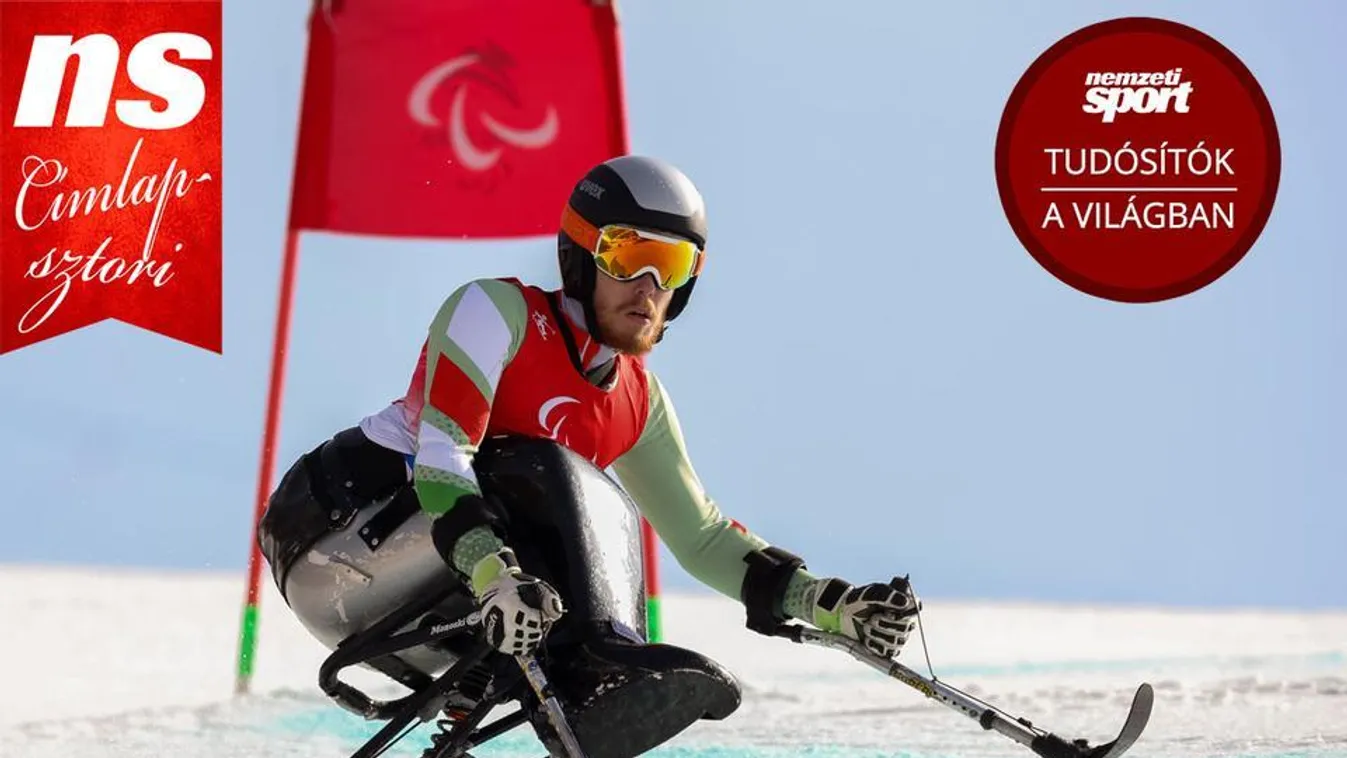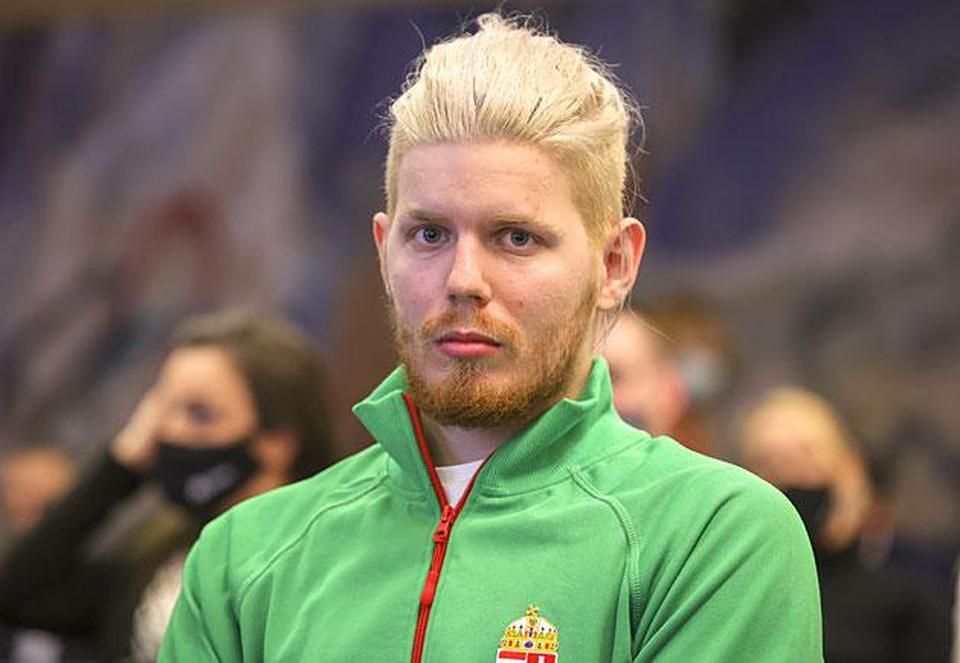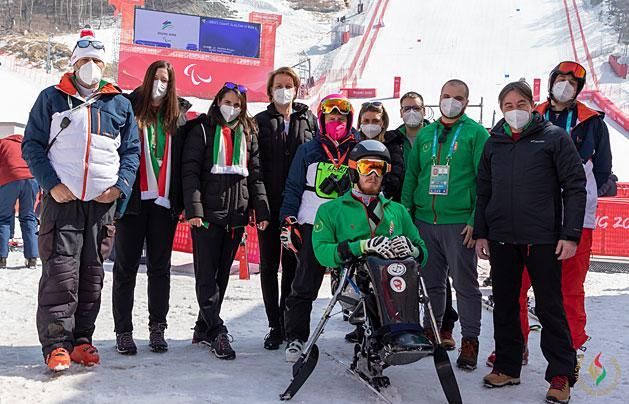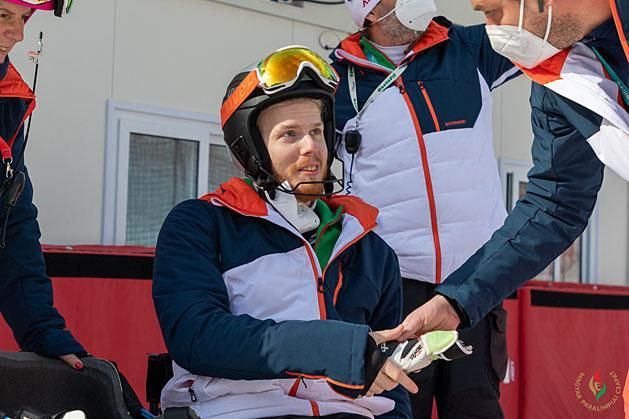Richárd Dumity reached the Paralympics after life-saving surgery

It was a hard but relatively short road to the point where Alpine skier Richárd Dumity qualified for the 2022 Beijing Winter Paralympics, and just two years after he started taking the sport seriously, he was able to represent Hungary among the best in the world, in the biggest competition possible.
Ricsi was born healthy in 1997, but at the age of three, he suffered a serious accident: he fell from the fourth floor of a condominium in Gyöngyös, and while he was falling, he hit his back in a window sill and spun. According to the doctors, this is the reason why he survived the accident. He landed on his feet, but broke his spine, right arm, fractured the femoral neck in both of his legs, his lungs and kidneys were damaged, and he fall into a coma.
"My first memory is that my grandfather pats me on the shoulder. From the accident, I only have one voice left in me, like the friction of the tires on the asphalt," Richárd Dumity, who grew up 15 kilometers from Gyöngyös, in the beautiful place of Mátrafüred, told Nemzeti Sport in Beijing.
He spent his childhood doing physiotherapy and rehabilitation but only in the area since treatment of the disabled was still in its infancy at that time. He attended primary school in Mátrafüred until the end of fourth grade when his school ceased to exist, and he transferred to the neighboring Abasár. However, he graduated from the vocational school for forestry, agriculture, and game farming in Füred. He was then admitted to the Hungarian University of Agricultural and Life Sciences in Gyöngyös (at the time, this was not the name of the institution, which has since changed its name several times), where he passed his state exam in agricultural engineering last December and received his diploma this January. In addition to studying, sports have always been present in his life.

"From the time I was able to use the wheelchair, I started to exercise because I needed something and I felt good about having some muscle build up on me," the 25-year-old athlete continued. “But over time, it wasn't enough, I wanted to put my energy into a more dynamic sport. I didn't just want to use my power to fold my chair as fast as possible or do 80 pull-ups. I needed more than that."
He immediately found himself an extreme sport after watching a video of Travis Pastrana's spectacular show called Nitro Circus on YouTube. In it, a guy in a wheelchair, Aaron Fotheringham, did several tricks, jumped, and performed backflips on ramps, halfpipes, stairs and railings, while falling a lot.
"I really liked it, and I realized that's what I needed," said Richárd Dumity, who immediately showed the video to his family, who was not as enthusiastic as he was. They didn't even finish the video yet, but they already told him to forget it, that they won't let him do it, and anyone who watches Fotheringham's videos isn't surprised by the parents' reaction. However, they saw the determination in their son's eyes and agreed that Ricsi had to find a way to exercise, so they began to look for an opportunity, just so that the stubborn boy would not start something he had originally thought of doing. They quickly discovered another video on the social media platform of a para-Alpine skier racing down on the slope, and since Ricsi liked it too, all he had to do was try it.
"My grandmother immediately started taking action, took out a loan and spoke to Viktor Klausmann, head of the Hungarian Ski Academy Association," Richárd Dumity recalled. “We went up to Kékestető, where Sándor Navratyil, a former Paralympic Alpine skier, was waiting for us, and had a device with him, which I tried out. I skied down with some help two or three times as a first skiing experience, and then I asked them to let me try it alone. I skied down, and now looking back, it was pretty bad, but still, I did it alone and so going up with the ski lift. When I got up and slid out of the lift, I didn't know how to stop, and I crashed straight into the ski storage facilities next to the ticket office. My mom applauded me that I can fall nicely!
Since he lives near the Mátra, it was obvious that he'd go up again and again to ski in Kékes, but three months later, he was given a bigger opportunity. Sándor Navratyil invited him to Bellamonte, Italy, for a week-long training camp. He used the opportunity, but as he says, he was just sliding for a while rather than skiing, at least compared to his current knowledge. But even if he was just sliding, he was so tired that he could hardly move for two weeks when he returned home. However, it was worth it, because he learned a lot there.

One night in 2014, at the age of 17, he woke up because his blood pressure had risen to 200, and had a severe headache that he felt his head was about to explode. They immediately traveled to Budapest, where Dr. Péter Varga examined him and found that due to his scoliosis, there was pressure on his heart and lungs, and none of the lobes of his lungs were working 100 percent. He outlined two options for Ricsi: he will either have surgery immediately, but he may die from the 10-hour complicated medical procedure, or he will not be operated on, but the situation could become even more serious and most likely life-threatening in six months.
"I didn't really have a choice, I decided to have the life-saving surgery," he said. “After that, I was in the hospital for two months, lost twenty-five kilos – I was seventy-five when I went in and came out fifty. For six months, it was still very difficult to move, which is natural after such an operation. I started training with a personal trainer, which slowly made me able to pull myself together.”
The situation changed again in 2019. Ricsi was given another opportunity to take sit skiing more seriously, and he was motivated by the fact that he was encouraged to do it persistently and that he could qualify for the Paralympics.
In Gödöllő, they first met with Attila Fábián, the Alpine ski head coach of the Hungarian Paralympic Committee, as well as Anita Dányi, the international director of the Organization, and Ricsi went to the meeting with his main supporters, his mother, grandmother and Viktor Klausmann, the head of his club.

Actions followed the meeting. The boy was classified in the LW10-2 category in Hungary, then the international classification ranked him to the LW10-1 in November 2020, thus removing all obstacles to competing in international events. He became visually impaired Zsolt Balogh's teammate, and when he started going to training camps abroad, he realized that his career stepped up a level and that he really has the opportunity to become one of the best. When it turned out that Zsolt Balogh could not travel to the Beijing Paralympics, Richárd Dumity emerged as Hungary's most likely potential Paralympian. "My technique has improved a lot in the last two years, and I feel like I'm doing pretty well now. In the past year, I have spent about 80 days on snow. Until last Easter, I went to Mátraszentistván five times a week, followed by training camps and competitions," said Dumity, who finished 16th in giant slalom at the World Championships in Lillehammer this January. After receiving the Beijing wild card, it became certain that he would be the seventh Hungarian athlete to qualify for the Winter Paralympics since 2002.
In the Chinese capital on Thursday, he finished in the penultimate place in the first heat of the giant slalom and confidently completed the slope at his debut Paralympics. He started last in the second heat and finished 30th, with which he achieved his goal with integrity. He has one more race ahead of him at the Games: the slalom on Sunday.
"As a result of doing sports, my everyday life has become faster. I always have my attention on something, I always have something to do that occupies me and what I love," added Richárd Dumity. I'm going to keep skiing as long as I can, or until I become too old. I'm 25 years of age, and I think I can do three or four more Paralympic cycles. I'm happy to do that, and if I can, I'd love to be on the podium one day."
He hasn't secretly given up on his extreme sports dreams (“Oh, you did!” Andrea Kobezda, Ricsi's fitness coach shouts from the background). As he says, somewhere in the back of his brain it's still there. Of course, he'll have to talk about it with his family, but one thing's for sure: skiing is his priority, and hopefully, it'll be for many years to come.
Translated by Vanda Orosz

